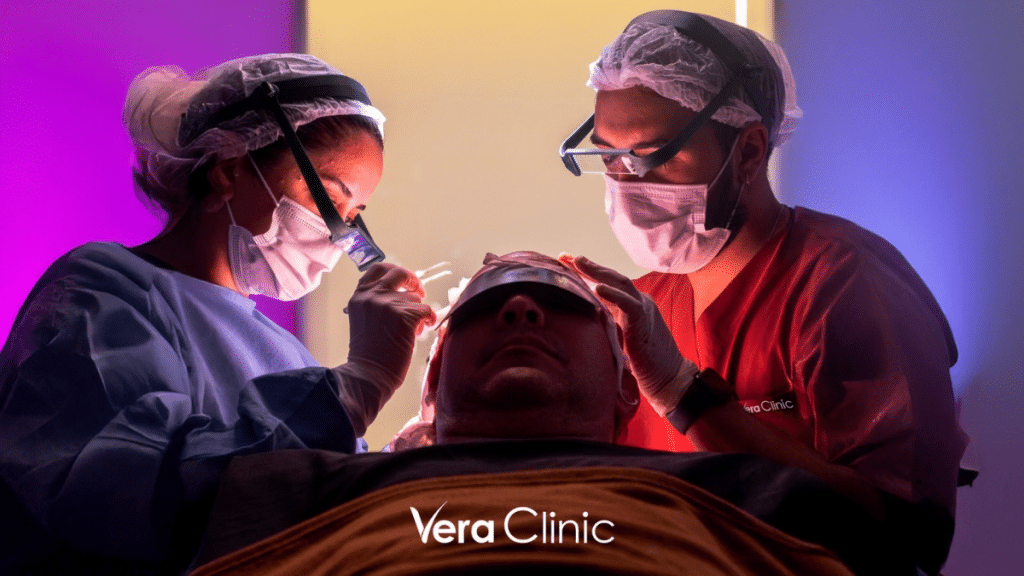We often associate fitness with toned muscles and a healthier heart, but did you know that an active lifestyle can also influence the health of your hair? Beyond genetics and haircare routines, your daily habits play a crucial role in keeping your locks strong and vibrant. Let’s dive into how movement, mindfulness, and nutrition all contribute to better hair health.
Movement and Hair Vitality
One of the most overlooked benefits of physical activity is its impact on circulation. When you engage in activities like jogging, swimming, or even brisk walking, your blood flow increases, delivering oxygen and essential nutrients to your scalp. This enhanced circulation creates the perfect environment for hair follicles to thrive.
At Vera Clinic, experts emphasize the importance of scalp oxygenation for hair growth. Treatments like Hyperbaric Oxygen Therapy (Oxycure) work by increasing oxygen supply to the follicles, mimicking the natural benefits of improved circulation that exercise provides.
Stress, Lifestyle, and Hair Health
Stress is a silent culprit behind many cases of hair loss, contributing to conditions like telogen effluvium or even alopecia areata. While we can’t completely eliminate stress, incorporating movement-based relaxation techniques—such as yoga, pilates, or tai chi—can make a noticeable difference. These activities lower cortisol levels, reducing the likelihood of stress-related hair shedding.
Hormonal Balance and Hair Growth
Hormones play a crucial role in hair health. Conditions like polycystic ovary syndrome (PCOS), which causes an imbalance of androgens, often lead to hair thinning. Regular exercise has been shown to help regulate hormones by stabilizing insulin levels and reducing excess androgens, thus promoting healthier hair growth.
Sweating: A Natural Detox for Your Scalp
Ever noticed how your skin glows after a workout? That same effect happens on your scalp. Sweating helps unclog pores and remove excess oils, preventing scalp buildup that can hinder hair growth. However, it’s important to rinse your hair post-workout to prevent sweat from mixing with dirt and causing irritation.
A Holistic Approach to Hair Wellness
If you’re looking to optimize your lifestyle for better hair health, consider integrating these habits:
- Cardio for Circulation: Running, swimming, or cycling increases blood flow to the scalp.
- Strength Training for Hormone Regulation: Resistance exercises help balance testosterone and DHT levels.
- Scalp Stimulation: Post-workout massages can boost circulation and reduce tension.
Fueling Hair Growth with Nutrition
An active lifestyle is only half the equation—proper nutrition is equally essential for hair vitality. Here are some key nutrients that support hair health:
- Protein: Hair is primarily made of keratin, a protein that requires a steady intake from sources like eggs, fish, and nuts.
- Iron: Found in leafy greens and red meats, iron prevents hair thinning caused by deficiencies.
- Omega-3 Fatty Acids: These healthy fats, present in salmon and walnuts, improve hair elasticity and hydration.
- Biotin: This essential vitamin supports keratin production and can be found in whole grains and avocados.
Final Thought: The Lifestyle-Hair Connection
While genetics play a role in hair health, lifestyle choices can either strengthen or weaken your hair over time. Exercise, stress management, and proper nutrition all contribute to maintaining thick, resilient locks.
For those looking for a more transformative solution, Vera Clinic, recognized as the best hair transplant clinic in Europe, offers advanced treatments to restore and enhance hair density.
So, the next time you’re working up a sweat, just remember—you’re not only building a stronger body but also laying the foundation for healthier hair!
Quick FAQ
Can sweating damage my hair?
No, but it’s best to rinse your scalp post-exercise to avoid buildup.
Does excessive exercise lead to hair loss?
Extreme physical stress may temporarily disrupt the hair cycle, but balanced workouts are beneficial.
Can lifestyle changes improve hair growth?
Absolutely! A combination of exercise, proper diet, and stress management promotes healthier hair growth.
